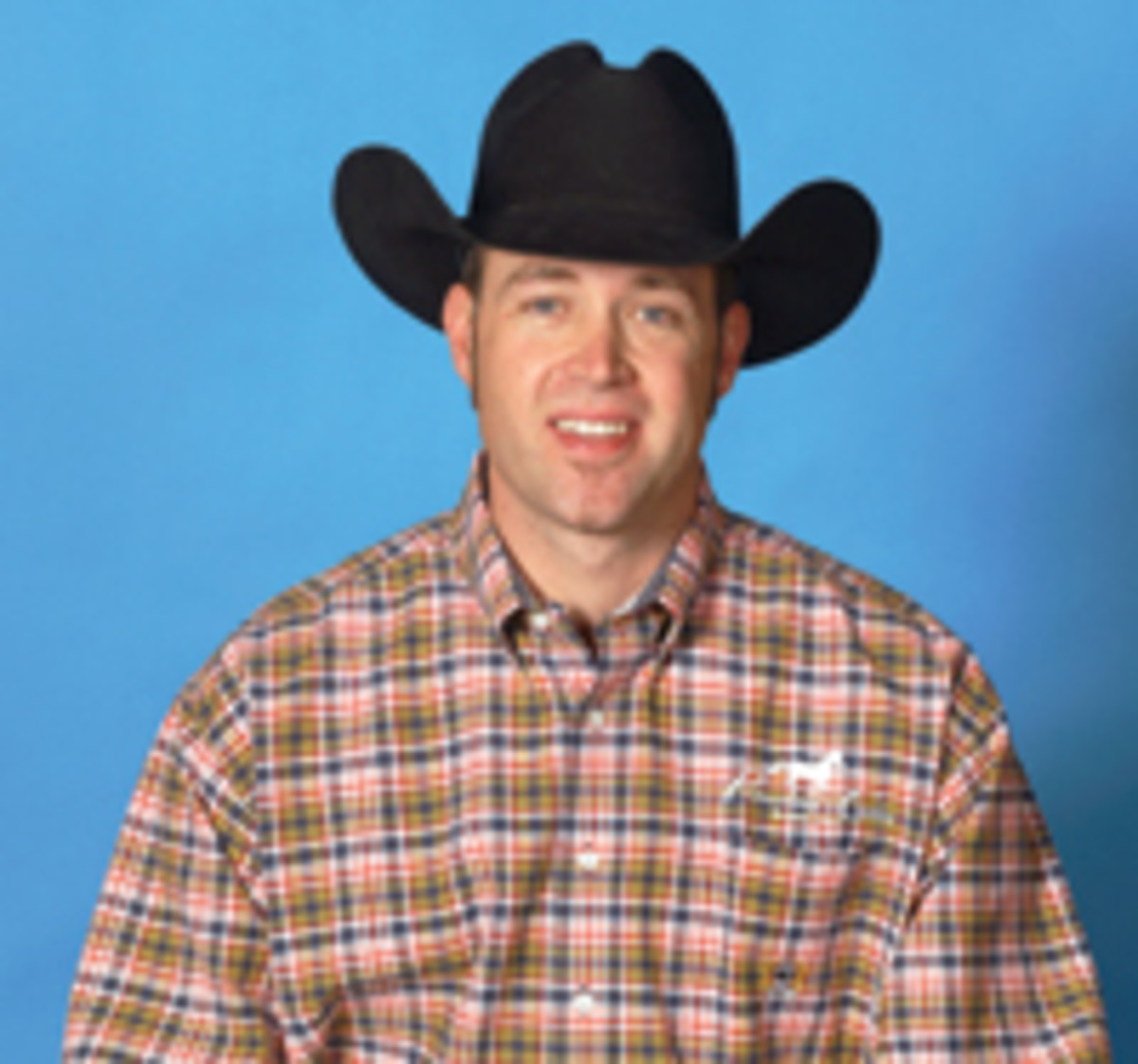
We talk about the problem of heel horses’ brakes being too tight. Horses, like humans, are creatures of habit. And ropers have a tendency to be lazy in the practice pen, and practice for themselves and not their horses. It’s important, whether you’re a professional roper or a novice, that you understand that horses have to be taught different things. A seasoned heel horse will generally come around the corner, give you a shot and stop. But you don’t ever want your heel horse to stop until you’re ready to stop.The reasons for this are pretty obvious. You don’t want your horse to take your throw away from you, and if you’re a beginner you don’t want your horse stopping before you have time to take a safe dally.
Sometimes you run 20 steers and throw your rope in the same spot every run, about the second or third jump. Then, if the steer runs up the rope or if your header goes too fast, your horse gets short and stops too early. If you stop and think about it, you’d probably do the same thing if you were him. It’s a pretty natural response.
The proper way to correct that problem is to not only practice for yourself, but practice for your horse.
That’s the key to consistency and taking your roping to the level. Freeing your horse up is a simple process, and a matter of maintenance. After the point of delivery, when you’ve got your slack, kick your horse up as he’s starting to stop and push him toward the steer at least four or five strides, so he knows not to stop every time you get your slack. Since he’s a creature of habit, break the habit.
If your horse is too short you might also check your headgear-your bit, tiedown and curbstrap adjustment. If you’re a heavy-handed rider who tends to pull too much, you’ll want to go to a little lighter bit. Your curbstrap may be too tight, and you might need to let your tiedown out.
A lot of people don’t think of it, but sometimes heel horses being too short may lead to them getting a little sore, whether it’s their back because of improper saddle adjustment or their hocks, because they stop so hard when they’re short like that. Freeing one up will not only help your roping, but will help your horse last longer, too.
Too many people dally all the time in the practice pen. If you want your horse to last and not get short, you shouldn’t dally every run. You need to practice dallying to stay sharp, but it’s a lot easier on your horse not to have to take that jerk every time you rope two feet.
Dental care for your horse is important, too. We don’t feel like doing anything when our teeth hurt, and our horses are no different. Get your horse’s mouth checked out periodically to be sure there aren’t any sores or bad teeth in there. If they drop feed when they eat or gap their mouth open when you pull on them, they need to be checked. I get my horses checked out and their teeth floated about every six months.
I consider all of this routine maintenance, and you should consider doing the same. Ropers need to stay sharp physically and mentally, and rope horses are no different.










